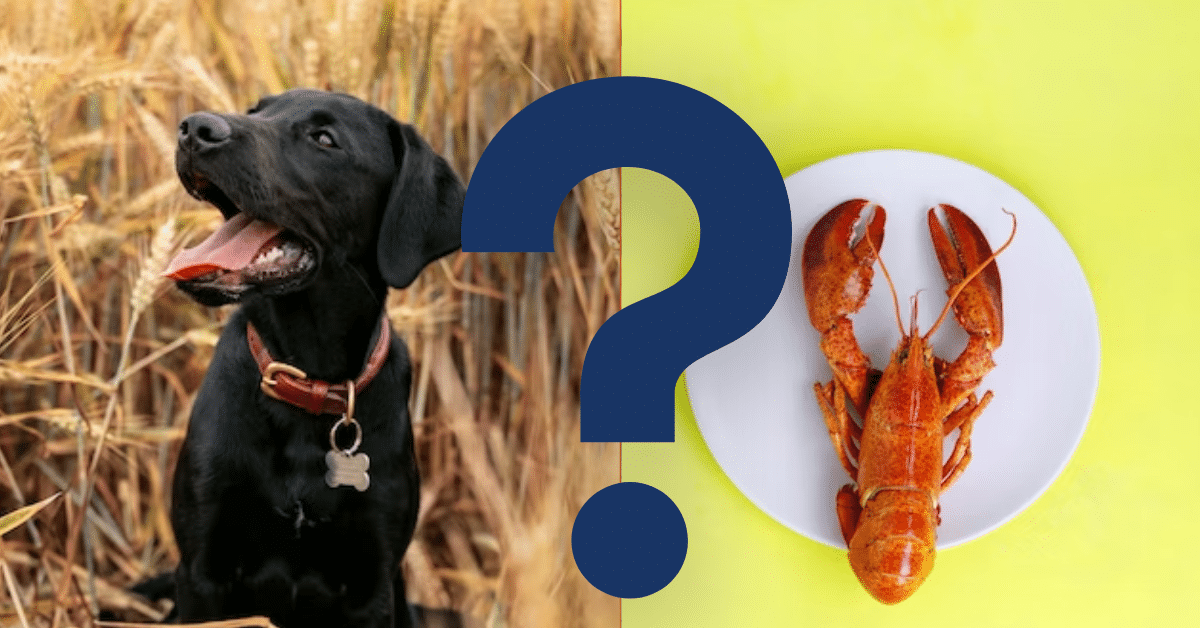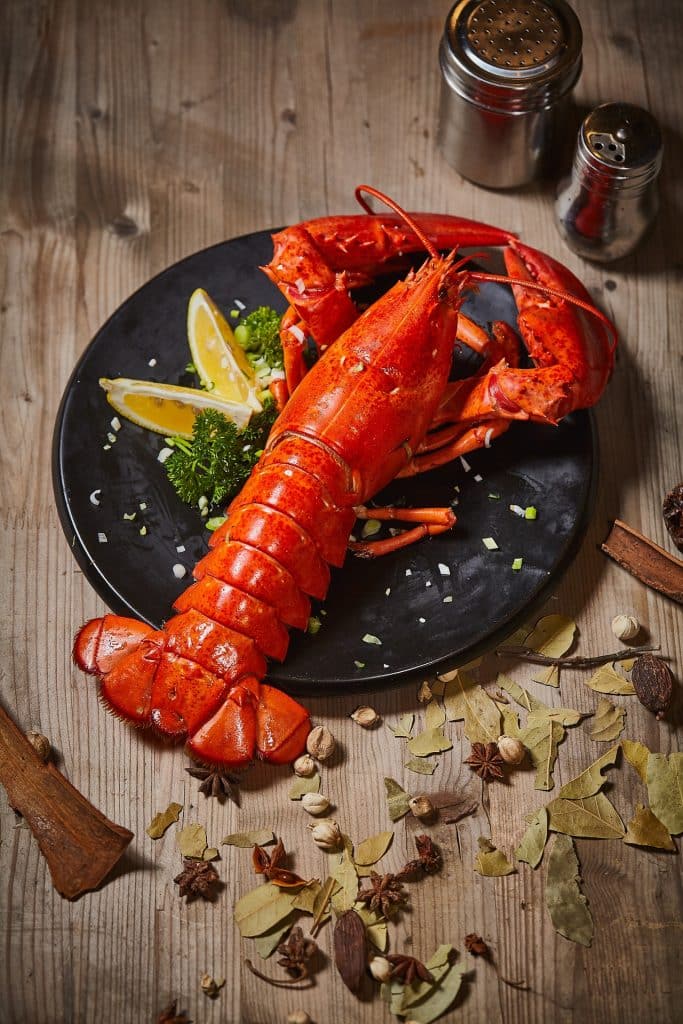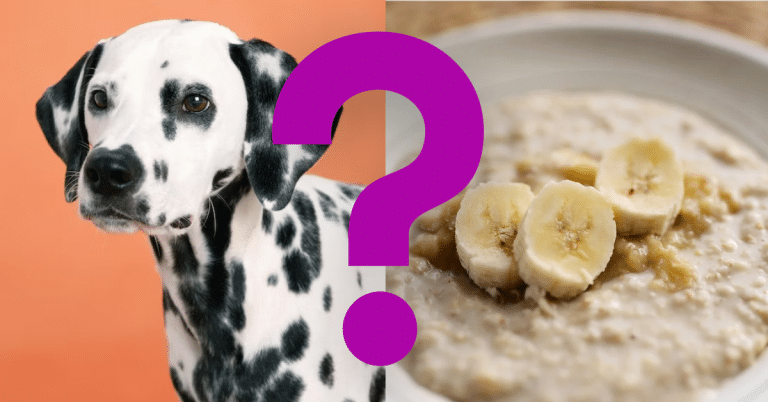Can Dogs Eat Lobsters? A Vet’s Opinion

Oceans worldwide are home to lobsters, marine crustaceans with two massive claws, a long tail, and a hard exoskeleton. But can you feed lobsters to your dog?
Although technically possible, it is advised to refrain from regularly feeding lobster to dogs as part of their diet. Although low in fat and high in protein, lobster meat can be rich and complex for dogs to digest. The shells and claws can also be a choking hazard or result in digestive problems. If you occasionally give your dog lobster as a treat, ensure it is fully cooked, unseasoned, and free of butter. You should also make sure to remove the shell and claws before serving.
Benefits Of Lobsters For Dogs
Even though lobsters can be a fantastic source of protein for dogs, it’s crucial to remember that they should only be given to dogs as a special treat, not as a staple of their diet.
Protein
Protein, which is vital for a dog’s body’s development and repair of tissues, is abundant in lobster meat. It also includes amino acids, which support the development and growth of muscles.
A Good Substitute For Meat
Furthermore, lobster flesh is a healthy substitute for other meat-based delights that could be heavy in calories because it is low in fat and carbohydrates.
Source Of Minerals
It also contains minerals crucial for keeping strong bones and muscles, like potassium, calcium, and magnesium.
However, it’s crucial to exercise caution while giving dogs lobster. If swallowed, the shells and claws could be a choking hazard or result in digestive problems. Before giving the lobster to your dog, ensure it is adequately cooked, free of seasoning or butter, and all the shells and claws have been removed. As a result, even though they can offer some nutritional advantages to dogs, lobsters should only be given sometimes as a treat and not as a staple food. A veterinarian should always be consulted before adding new items to your dog’s diet.

How To Safely Give Lobsters To Dogs
If you sometimes like to treat your dog to lobster, it’s crucial to do it carefully. Here are some guidelines for giving dogs lobsters safely:
Remove The Shells And Claw
Ingesting the shells and claws could result in a choking hazard or digestive problems. Before giving your dog lobster, remove all shells and claws.
Cook The Lobster Thoroughly
Before serving the lobster to your dog, ensure it has been sufficiently cooked. Undercooked or raw lobster may contain dangerous bacteria that can make you sick. Safely cooking lobster involves either boiling, steaming, or grilling.
Avoid Spice And Butter
Seasonings like spice and butter are frequently offered with lobster, which can harm dogs. Spices might upset your dog’s stomach, and butter’s high-fat content can make it difficult for them to digest. Serve the lobster without any spice or butter, please.
Cut The Lobster Into Bite-Sized Pieces
Large chunks of lobster meat can be complex for dogs to digest. Your dog will find chewing and swallowing the lobster simpler if cut into small pieces.
Monitor For Allergic Reactions
After giving your dog lobster, watch for any stomach problems or allergic reaction symptoms. Contact your veterinarian if your dog exhibits odd symptoms, such as vomiting or diarrhoea.
In conclusion, you can safely give your dog lobster as an occasional treat if you remove the shells and claws, properly prepare it, stay away from seasonings and butter, cut it into little pieces, and keep an eye out for any adverse reactions in your dog. Before introducing any new items to your dog’s diet, it is always advisable to speak with a veterinarian.
Will Lobsters Make A Dog Sick?
Like any new food, lobster can potentially ill a dog, mainly if it is improperly prepared or served. The lobster may contain dangerous bacteria that can make people ill if not cooked thoroughly. In addition, if swallowed, the shells and claws could be a choking hazard or result in gastrointestinal problems. Butter and the seasonings that are frequently given with lobster might also create digestive problems or upset a dog’s stomach.
Introducing new items to your dog’s diet gradually and in small amounts is crucial to gauge their reactions. It is essential to call your veterinarian right away if your dog has vomiting, diarrhoea, or any other strange symptoms after eating lobster. In conclusion, while occasionally treating dogs to lobsters is OK, it’s crucial to do so in moderation and to take the required safety and health precautions.
Can dogs eat lobster variations?
As long as they are prepared and served safely and suitably, dogs can eat a variety of lobsters. It entails de-clawing and boiling the lobster completely without using seasoning or butter.
The added elements in specific lobster preparations, including lobster salad or bisque, may be toxic to dogs. For instance, lobster salad may contain onions or garlic, which can poison dogs, while lobster bisque may have cream or other dairy items that might cause intestinal problems.
Before serving your dog any lobster dish, it’s crucial to read the ingredient list and omit any potentially toxic additives. Furthermore, it’s crucial to only give lobster to dogs sometimes as a treat and not as a common element of their diet.
In conclusion, dogs can consume a variety of lobster species, but it’s crucial to ensure they are prepared and served correctly and to omit any potentially dangerous elements. Additionally, giving dogs lobster occasionally and in moderation is crucial.

Vet’s Summary
Since lobster is a good source of protein and contains necessary amino acids and minerals, it can be occasionally given to dogs as a treat. However, cooking and serving lobster safely is crucial by removing its shell and claws, thoroughly cooking it, and avoiding potentially harmful ingredients like seasoning or butter. Additionally, it’s critical to moderately feed lobster to dogs and keep a close eye out for any adverse reactions. A veterinarian should always be consulted before introducing any new foods to your dog’s diet, and dogs should be kept from being fed lobster regularly.
If a dog has digestive problems after eating lobster, consider giving them probiotic pills. Providing helpful bacteria that can enhance digestion and lower inflammation, probiotics can promote a dog’s overall health in the gut. Probiotics can also strengthen a dog’s immune system and lower the likelihood of illnesses. It’s critical to select a probiotic supplement made exclusively for dogs and to take it according to the amount advised for their size. As usual, speaking with a professional before giving your dog any supplements is wise.
Videos To Watch
If you are wondering if you can give your dog lobster, watch this:
And if you want to know what a dog can NOT eat, watch this:






